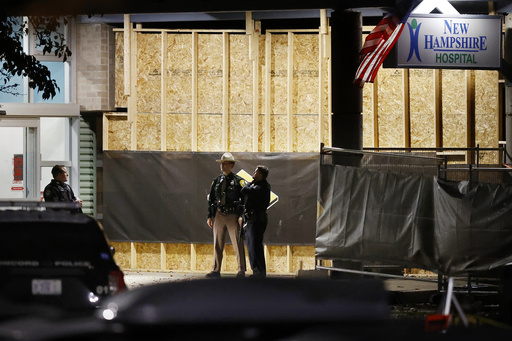A recent report from the New Hampshire Attorney General stated that State Trooper Nathan Sleight was justified in using deadly force when he fatally shot John Madore at a psychiatric hospital in November. The incident occurred shortly after Madore killed a security guard, Bradley Haas, at the New Hampshire Hospital in Concord. Madore, a former patient at the facility, entered the hospital and shot Haas without warning before firing multiple shots in various directions inside the lobby.
Madore proceeded to try to reload his pistol when Trooper Sleight intervened, instructing Madore to drop his weapon. Instead, Madore ignored the commands and attempted to continue reloading his gun. In response, Sleight fired his service pistol, causing Madore to fall to the floor. Despite being on the ground, Madore persisted in trying to reload his pistol, prompting Sleight to use the remaining ammunition in his weapon to prevent Madore from reloading.
The report indicated that the entire sequence of events transpired in less than a minute, emphasizing the swift and dangerous nature of the situation. It concluded that Trooper Sleight’s decision to perceive Madore as an immediate deadly threat was reasonable given the circumstances. Madore, who had a history of mental health issues and had been a residential patient at the hospital on multiple occasions, including expressing paranoid thoughts about organ harvesting by hospital staff, had a troubled background.
With over 11 years of law enforcement experience, Sleight demonstrated quick thinking and decisive action in response to the critical incident at the hospital. The report shed light on the complex and tragic events leading up to the use of deadly force by the state trooper, underscoring the challenging circumstances faced by law enforcement officers in high-pressure situations involving individuals with mental health issues.
